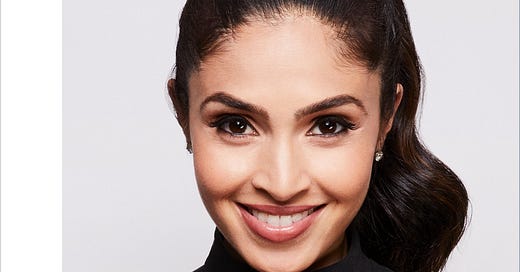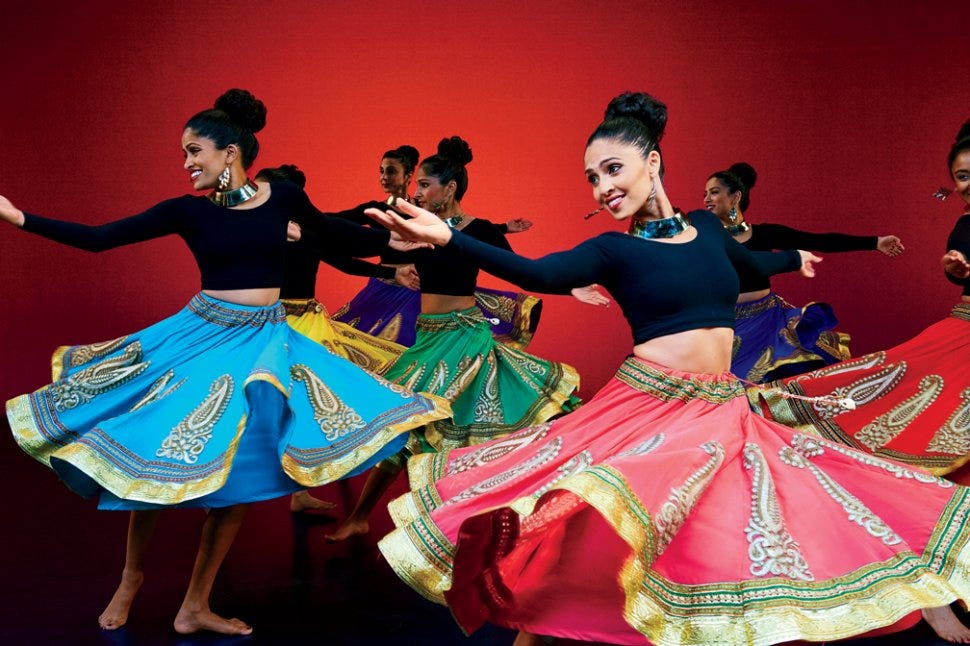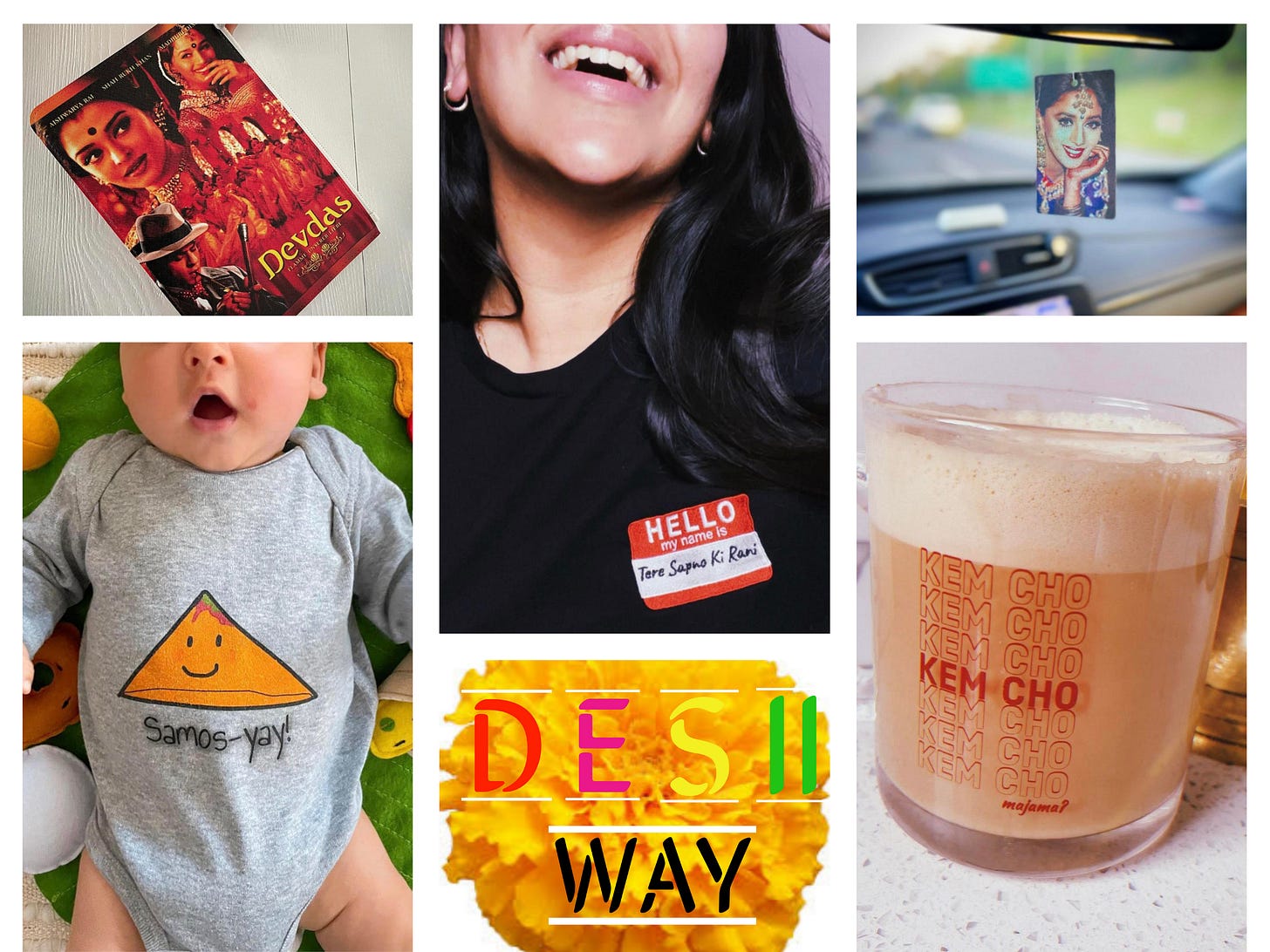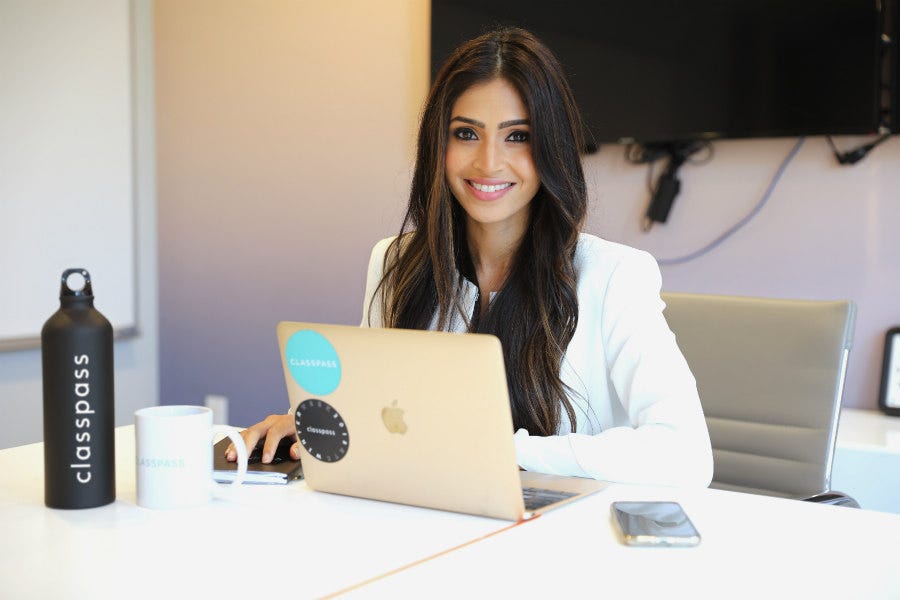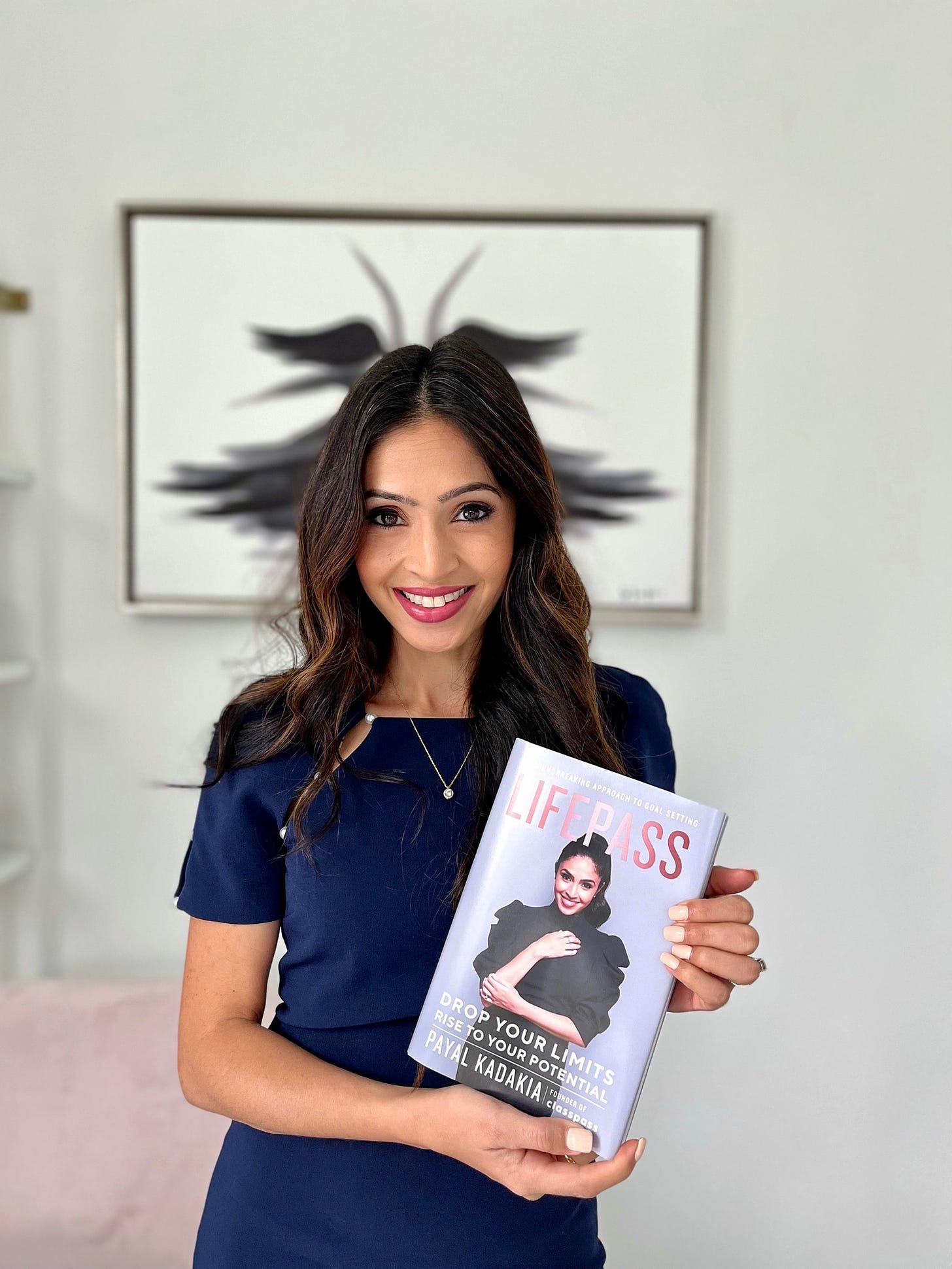#31 ClassPass Founder, Artist, and Author, Payal Kadakia
On pivoting to ClassPass and her next chapter
Welcome! I’m Simi Shah, and every other week, I dive deep into the journey of a South Asian trailblazer. If you enjoy this issue, encourage your friends to subscribe and write us a review.
Season 4 Kickoff 🎙️ Payal Kadakia, Founder of ClassPass, Artist, and Author
To kick off Season 4 🎉, I welcomed Payal Kadakia, Founder of ClassPass.
ClassPass is a subscription-based platform that enables people to book a variety of fitness classes without paying for individual memberships. Payal served as CEO of the company until 2017, at which point she became Executive Chairman. By 2020, ClassPass became the first unicorn of the decade and in late 2021, the company was acquired by MindBody in an all-stock deal and secured $500 million. Prior to founding ClassPass, Payal worked at Bain & Company and at the Warner Music Group. She continues to serve as founder and artistic director of SA Dance Company, a contemporary Indian dance troupe. Payal holds a degree in Economics and Operations Research from MIT. She is also a newly-minted author with her upcoming book, LifePass.
Excerpts from the pod below:
I want to start at the beginning of the ClassPass story. You spent 3 years at Bain, then you joined Warner Music Group in 2008, so you could spend more time on your passion for dance. Then one day, you give yourself two weeks to come up with an idea for a company. What prompted that?
I knew I needed to move forward in my career. I was at a point where my current job wasn't the right one. I had also been building my dance company, but I wasn't at the point where I was going to scale that either. So I knew I needed to make a shift. And I didn't want to waste too much time thinking of this crazy idea.
I had actually gone out to San Francisco to visit one of my friends, Parul, who worked at Bain with me. This is 2010. The word entrepreneurship is not something that people are familiar with. It's not something that people consider a career path, especially in New York City.
But in San Francisco, it’s a very different story. Everyone was building apps and ideas. And I was so inspired. It felt risky, but I was like, ‘Hey, why don't I give myself two weeks to see if this is an environment I can thrive in? Is there a problem in the world I want to solve?’
Actually, it's funny, and we'll go back to that later because the whole problem in the world I want to solve is a really important part of this whole journey, for me and for any entrepreneur. I was thinking, ‘What can I solve in the world with my creativity, my passion, my leadership?’ And if I didn't think of something in two weeks, then it was time to maybe find other career options and think of other ways to move around in the music industry or in the arts world. But that was really the reason I gave myself that deadline.
Sometimes, the best way to connect with our culture is to integrate into our everyday lives. DesiiWay’s custom clothing, accessories, and homeware — from the Kem Cho mug to their Diwali holidays sweaters do exactly that — fusing South Asian culture with everyday wares.
Live life the desi way. Get 15% off your order with the code: [for subscribers only]
Fast forward to 2021 and ClassPass gets acquired by MindBody. Did you struggle with the decision to sell? Is this the outcome you always envisioned?
You never know. As a founder, you build to build and whatever these outcomes are, they vary. For us, what's so interesting is, I have met and worked with MindBody since the day I first built ClassPass. So when we were first building that OpenTable model that failed, we were working with MindBody. So these two companies have worked together for so long, I think both would say this was a matter of when, not if, we were going to come together. And with COVID happening and going back to the mantra of protecting so many of our studios, we knew that putting these companies together was the best way to help the entire industry get to the other side of this pandemic. Because like I said, we were going to always come together at some point because of the way we complemented each other's businesses. And so this helped direct our energy into getting the industry up and running again.
It's definitely hard. In making that decision, I decided to obviously move forward onto new projects. That was probably the harder part of it for me because I've been working on this for literally a decade. And now I'm at a point where I'm asking, ‘Where do I want to spend my time, my energy and my dreams?’ I will always love what I built at ClassPass, and still am such an avid user. But at the same time, you have to move on, keep moving forward, and keep sort of ripping off that band aid over and over again.
You spoke very briefly about this grander vision for ClassPass, which was LifePass, where you would offer other experiences like cooking classes or massages in addition to fitness. Now you have a book coming out by the same name! Can you speak about LifePass — both the vision and now the book?
I love that you know that connection! It makes meso happy. But yeah, I always remember this conversation I was had with Fritz, when we were talking about vision, and in the tech world we say n meaning like state one. And then there's n+1, which would be the bigger one and then n+2, which would be the bigger. n was this idea of ClassPass. n+1 was ActivePass, and n+2 was LifePass. And I made this slide in like 2013 or 2014. And it was this idea of how we could continue to expand the categories and types of experiences on the platform. And so yeah, that journey has always been the Northstar.
And I felt as this journey was kind of coming to an end, I really wanted to share all these tips and different methodologies that I've put into my life over this past decade, and honestly, throughout my entire life. These things that have really helped me succeed. One of the biggest things I learned is — and people always know this about me — I don't let anything stand in my way. It comes down to whatever limits we perceive in our life, and what we're able to work through. Sometimes they are mental — like failure, expectations, identity, or sometimes, they're real things like, ‘I don't have money, I don't know the right people, I don't have the skills.’ And through this book, I go through each one of those, how they affected my life, and how readers themselves can work through them.
Hear Payal’s journey in her own words — catch the full episode on Apple, Spotify, on our website, or anywhere you stream podcasts. Until next time!

